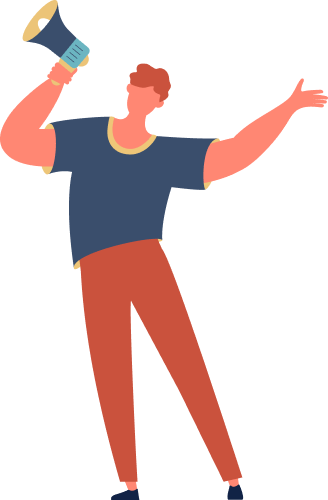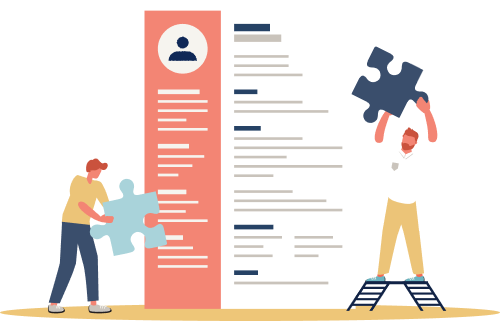10 Signs an Interview Went Well (What to Look For)
Wondering how to know if an interview went well? These 10 signs show you made a strong impression and may be on your way to getting the job (or the next interview). Even if you’re unsure, knowing what to look for can boost your confidence and help you prepare for the next step.


Our customers have been hired by: *Foot Note
Finishing an interview often leaves you replaying every answer in your head and second-guessing how you came across. Did you say the right things? Did they really like you? It’s normal to feel uncertain, but the truth is that there are often clear signs that reveal whether an interview went well or poorly.
In this guide, I’ll break down the most common signs an interview went well — or badly — so you can better understand how you did. You’ll also learn what steps to take afterwards to improve your chances of getting the job.
10 Signs your job interview went well
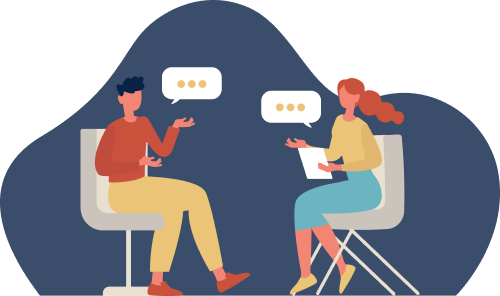
You put in the hard work of refining your CV, researching the company, and preparing for the job interview. You went over common interview questions and questions to ask the interviewer until they felt second nature. Then came the big moment: the interview itself. Now that it is over, you are left wondering how it really went. Did you impress them? Are you one step closer to landing the job?
Here’s how to know if an interview went well:
1. The conversation felt natural
When an interview doesn’t feel like an interrogation but flows like a genuine conversation, that’s usually an excellent sign. Instead of just firing questions, the interviewer might:
- Build on your answers with their own thoughts.
- Share stories about the role or company.
- Laugh or respond warmly when you do.
This type of natural back-and-forth shows they’re engaged and genuinely interested in getting to know you. Good communication skills are vital in any job, and when they come naturally in the interview, it suggests you could work well with the team and build positive relationships on the job.
2. They showed interest in your CV or experience
A clear sign of success is when the interviewer digs deeper into your CV or past achievements. They may:
- Ask detailed follow-up questions about specific projects.
- Want to know how you solved a particular challenge.
- Explore skills that weren’t fully listed on your application.
If they’re connecting your experience to the job’s requirements, it suggests they already see you in the role.
Tip: Learn how to create a CV that is interview-friendly.
3. Positive body language
Interviewers often reveal what they’re thinking through their body language — even on video calls. It’s an unspoken sign that the interview went well. Look out for:
- Smiling and nodding while you speak.
- Leaning slightly forward or sitting upright instead of slouching.
- Steady, interested eye contact (not glancing constantly at notes or screens).
- Mirroring your gestures or tone of voice, which shows rapport.
- Engaged facial expressions (raised eyebrows, nods of agreement).
- Using encouraging verbal cues such as “yes,” “that’s interesting,” or “tell me more.”
Whether in person or online, these cues suggest they’re listening closely and are genuinely interested in what you have to say.
4. The interview ran longer than scheduled
Most interviewers are on tight schedules, so if they spend more time with you than planned, it’s a strong indicator of interest. Extra time usually means they want to:
- Learn more about your skills and personality.
- Give you a chance to ask more questions.
- Discuss the role in greater depth.
Running over time is a good sign that they value the conversation and see potential in you.
5. They asked about your availability
Employers rarely ask about your start date unless they’re seriously considering you. Questions to watch for include:
- “When would you be available to start?”
- “What’s your notice period?”
- “Are you flexible with working hours?”
These questions show they’re already picturing you as part of their team — a clear sign the interview went well.
6. Future-focused language
Listen carefully to the way the interviewer talks about the role. If they say things like “you will be managing…” or “in this role you’ll work with…”, it’s more than just explaining responsibilities — it’s a sign they see you doing the job.
7. You were introduced to other team members
Being invited to meet other people during the interview often means they want to:
- Check how you’ll fit in with the team culture.
- Get a second opinion from colleagues.
- Help you see yourself working there.
It’s a positive sign your interview went well, as most employers don’t do this unless they’re seriously interested.
8. They talked about company culture and benefits
If the interviewer takes time to “sell” the role to you, that’s a strong sign. They may:
- Highlight benefits like flexible working or career growth.
- Share stories about company culture.
- Emphasise why people enjoy working there.
When an employer tries to get you excited, it often means they’re already invested in you as a candidate.
9. The next steps were discussed
At the end of a successful interview, the employer typically outlines the next steps. This might include:
- Explaining the timeline for decisions.
- Mentioning a second-stage interview.
- Talking about reference checks or background screening.
The more detail they give, the more likely it is they’re moving you forward.
10. You received a quick or warm follow-up
Communication after the interview is often the biggest clue. Positive signs include:
- Receiving a thank-you email from the interviewer.
- Hearing back sooner than expected.
- Getting a personalised message rather than a generic reply.
A quick, warm follow-up usually shows they’re keen to keep you engaged.
5 signs your interview went badly
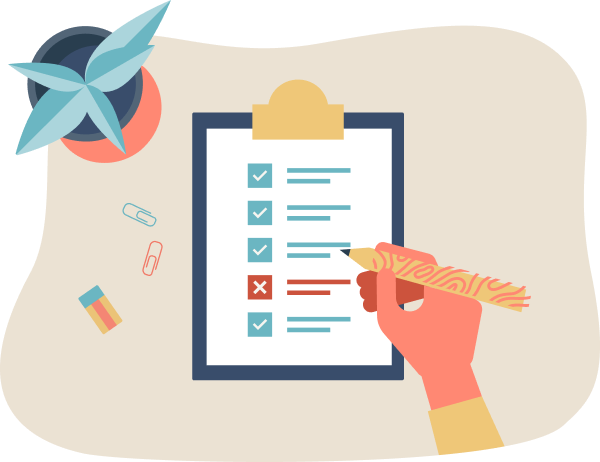
Instead of walking away with confidence, you are replaying the interview with a knot in your stomach. It may have felt rushed, or perhaps the interviewer seemed distracted. Not every awkward moment means failure, but there are a few warning signs that can hint that the interview did not go as well as you hoped.
Here are five of the most common red flags to watch for:
1. The interview felt rushed
If the interviewer seemed eager to wrap things up quickly or stuck rigidly to a script without exploring your answers, it may suggest a lack of interest. Short interviews are not always negative, but they can sometimes signal that the employer has already decided to move forward with other candidates.
2. The interviewer showed little engagement
When an interviewer avoids eye contact, rarely smiles, or fails to respond with follow-up questions, it means they were not impressed by your answers. In online interviews, this might look like them checking emails, appearing distracted, or keeping their camera switched off. That’s a sign your interview went badly.
3. They asked very few questions about you
If they did not explore your CV, work experience, or achievements in any detail, it could mean they were not convinced you were the right fit. Strong candidates usually prompt curiosity and deeper questioning.
4. Limited opportunity for you to ask questions
At the end of most interviews, candidates are usually given time to ask their own questions. If the interviewer cut this short or skipped it altogether, it can be a red flag that they were not invested in the conversation.
Even if you did get to ask, pay attention to how they responded. If their answers were vague or short, it may suggest they were not eager to engage further. Genuinely interested employers tend to give thoughtful answers and encourage curiosity about the role.
5. No clarity on next steps
If the interviewer ends the meeting without explaining what happens next, such as when you will hear back or what the hiring process involves, it can be a sign they are not considering you further. Strong candidates usually leave with a clear outline of the following stage, whether that is a second interview, an assessment, or a timeline for feedback.
Next steps after your interview
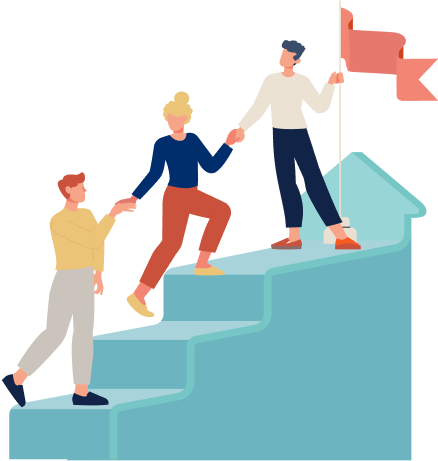
Whether your interview felt like a success or left you unsure, what you do afterwards is just as important as the performance itself. Taking the right steps will help you stay professional, improve your chances, and keep your job search moving.
If the interview went well
- Send a thank-you email. Keep it short, polite, and professional. Thank the interviewer for their time, and reinforce your enthusiasm for the role.
- Stay prepared for the next stage. Many roles require second interviews or additional assessments. Take note of what went well in your first interview and practise potential follow-up questions.
- Research the company further. Use the time before you hear back to learn more about their culture, goals, projects, and competitors. This preparation shows commitment if you are invited to the next round.
If the interview didn’t go well
- Do not jump to conclusions. Interviews that feel awkward sometimes lead to job offers. Employers may be distracted or having a busy day, so one or two bad signs do not always mean rejection. Remember, interviews often highlight soft skills, which can carry more weight in people-focused roles than in highly technical jobs, where employers may be more interested in your problem-solving ability and specialist knowledge.
- Reflect and learn. Write down what you think went well and where you struggled. This reflection can guide your preparation for future opportunities.
- Keep applying. Even if you feel confident, continue your job search. Having more interviews lined up reduces pressure and keeps momentum in your career journey.
Regardless of how the interview went, it is essential to handle the waiting period with professionalism. If you have not heard back within the given timeline, or after about a week if no timeline was specified, send a polite follow-up email.
Try to stay positive. An interview is only one step in the hiring process, and whether or not you move forward, each experience helps you build confidence and perform better in the future.
Frequently asked questions about job interviews
How long to hear back after the interview?
Most employers will respond within one to two weeks, although some make decisions faster. Senior roles or positions with multiple interview stages may take longer. If you were given a specific timeline, use that as your guide.
When to follow up after an interview?
If you have not heard anything within the timeframe the interviewer mentioned, or after about a week if no timeline was set, it is reasonable to send a follow-up. This shows interest without being pushy.
How to follow up on an interview?
Keep your email short, professional, and polite. Thank them again for their time, express continued enthusiasm for the role, and ask if there are any updates on the hiring process. Avoid sounding impatient or demanding.
How do I know if I got the job?
You cannot be 100% certain until you receive an official offer, but signs the interview went well include being introduced to other team members, being asked about notice periods, and being encouraged to think about the company culture and benefits.
Can a bad interview still lead to a job offer?
Yes. Sometimes, candidates think an interview went poorly when the employer actually saw potential in them. Interviewers may appear distracted due to workload, or they may be naturally less expressive. Until you get a response, it is best not to assume the worst.
How can I get more interviews?
If you are not hearing back from applications, your CV may need a refresh. Employers often decide who to interview based on first impressions, so a clear, professional, and modern CV can make a big difference. Using a CV builder helps you create a customised document that highlights your strengths and improves your chances of being noticed. A CV builder is the easiest way to create a standout CV and secure more interviews in less time.
Key Takeaways
Interviews can feel uncertain, but there are often clear signals that help you understand how your job interview went. Spotting these signs gives you confidence and helps you plan your next move.
- Positive signs include a natural flow to the conversation, genuine interest in your CV, strong body language, and a clear outline of what comes next.
- Negative signs might be a rushed meeting, little engagement, vague closing comments, or limited chances to ask questions.
- The waiting period matters. Sending a thank-you email, reflecting on your performance, and following up at the right time all demonstrate professionalism and keep you in the running.
- Every interview is progress. Even if one does not lead to an offer, it builds your confidence and prepares you for future opportunities.
To increase your chances of receiving more interviews, ensure your application is strong from the outset. Explore our expertly designed CV templates to create a CV that stands out and gets you noticed by employers.

Andrew Smith
Senior Content Writer
Meet Andrew Smith – an accomplished English copywriter with a strong background in SEO optimisation. Passionate about producing engaging content, Andrew has written across various fields, including health and fitness, security, travel, and tourism.
*The names and logos of the companies referred to above are all trademarks of their respective holders. Unless specifically stated otherwise, such references are not intended to imply any affiliation or association with myperfectCV.








